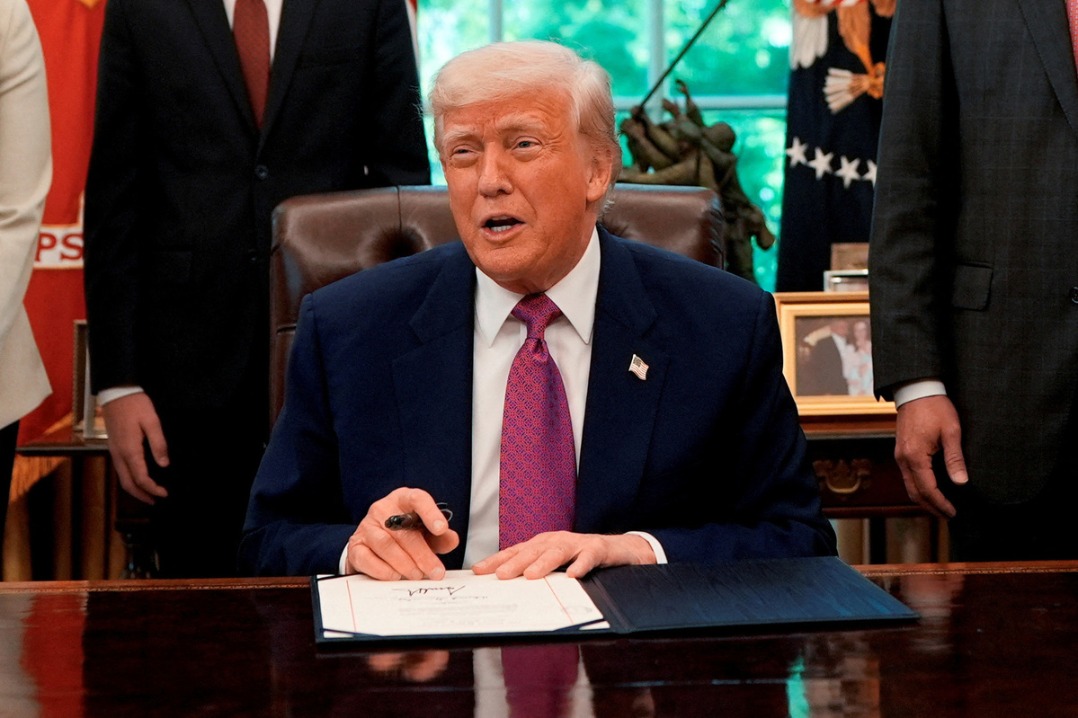US politicians need lesson in whole-process democracy

Ask any US politician about China's whole-process people's democracy and the reaction is most likely to be negative. There will be no acceptance, or even tolerance, on display.
The goal here is not to defend or support one form of government. Likewise, it is not to encourage readers to flock to or distance themselves from one form of government. Instead, the purpose is to point out an uncomfortable reality and challenge US politicians to do something about it.
The irony of a negative response regarding whole-process people's democracy is that it is likely to come from a politician who has never spent considerable, if any, time in China. He or she almost certainly will have been to multiple western European nations. Likewise, he or she will eagerly discuss visits to Israel, Japan and the Republic of Korea, among various non-European lands. But China? The world's second-largest economy might as well be a black hole to many politicians; simply put, they fear the blowback they might receive from supporters and critics should they make such a visit.
Thus, ignorance continues to dominate. The absence of personal experience combined with the need to maintain the negative narrative about China leads to the immediate use of talking points centered around China as a determined enemy of the United States that wants to undermine the global order. US citizens should demand better from the men and women they choose to represent them. Sadly, too few do.
At the risk of oversimplification, at its core, China's whole-process people's democracy is based on whether government officials and policies are improving the lives of the Chinese people.
Beginning at the grassroots level, locally elected officials must understand the needs of their areas because what is taking place there might serve as a relevant example for conversations at the national level. As policy decisions continue to be made, committees of the Chinese People's Political Consultative Conference offer input on potential plans.
Eventually, choices are shared with Party members, who are then tasked with relaying the needs of the people to the highest authorities.
The CPC has the responsibility to ensure that public sentiment is understood and followed. Their activities are most notable at the annual National People's Congress, which typically takes place in March.
Is it working? Harvard University reports that year-on-year sampling data it has collected show that "satisfaction with government has increased across the board. From the impact of broad national policies to the conduct of local town officials, Chinese citizens rate the government as more capable and effective than ever before".
In 2024, the Pew Research Center asked citizens of 24 "recognized democracies" around the world whether the electoral system they had was a good way to govern their country. Overall, 20 percent suggested it was a bad option. The five countries with the highest negative numbers are South Africa (32 percent), Brazil (28 percent), Argentina and Kenya (24 percent) and then the US(23 percent, and tied with other countries).
Is it fair to call whole-process people's democracy more complex than the West's definition of democracy? Probably. Part of the reason is that the execution of any one election is not a barometer of success. Related to this, lengthy campaign seasons in which the so-called race to the bottom, defined by a barrage of negativity about an opponent, do not exist. And, yes, the competition between parties that defines political life in the West is absent in China.
Chinese officials regularly note that whole-process people's democracy involves the Communist Party of China as the leading authority across the country, with the people making critical decisions regarding policies and the law forming the foundation for stability. Perhaps in the near future, more and more US citizens will want to ask more and more of their elected officials whether they have toured China and can attest to the veracity of that statement. And the results that should flow from it.
The author is an associate professor in the Communication and Organizational Leadership Department at Robert Morris University in Pennsylvania, the United States. The views do not necessarily reflect those of Robert Morris University or China Daily.

































